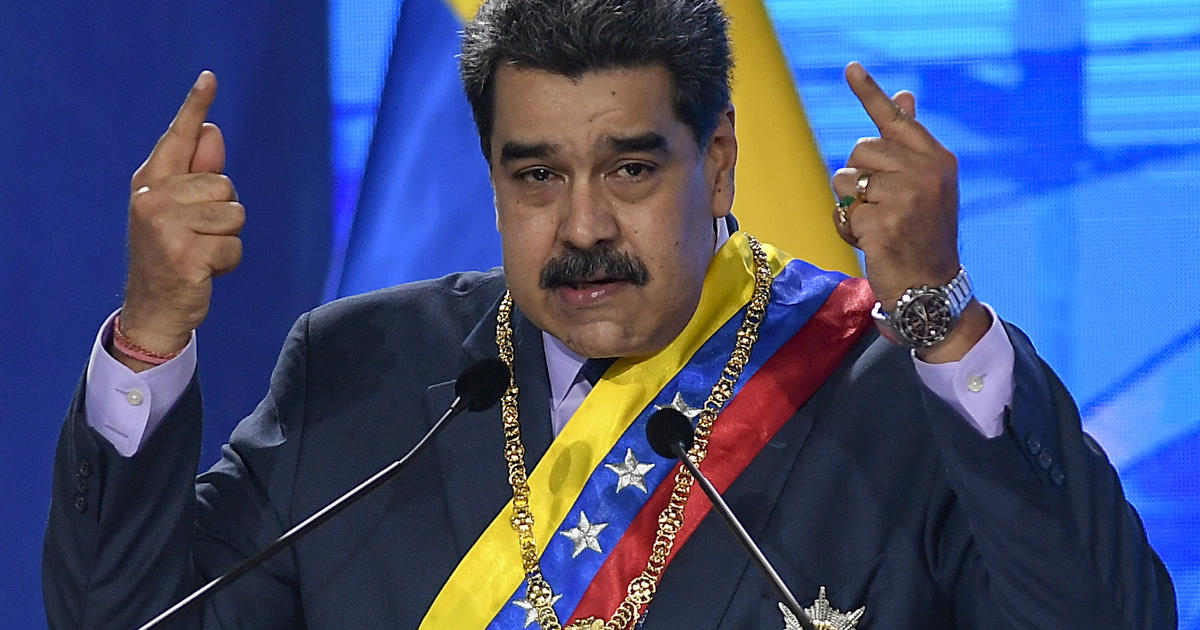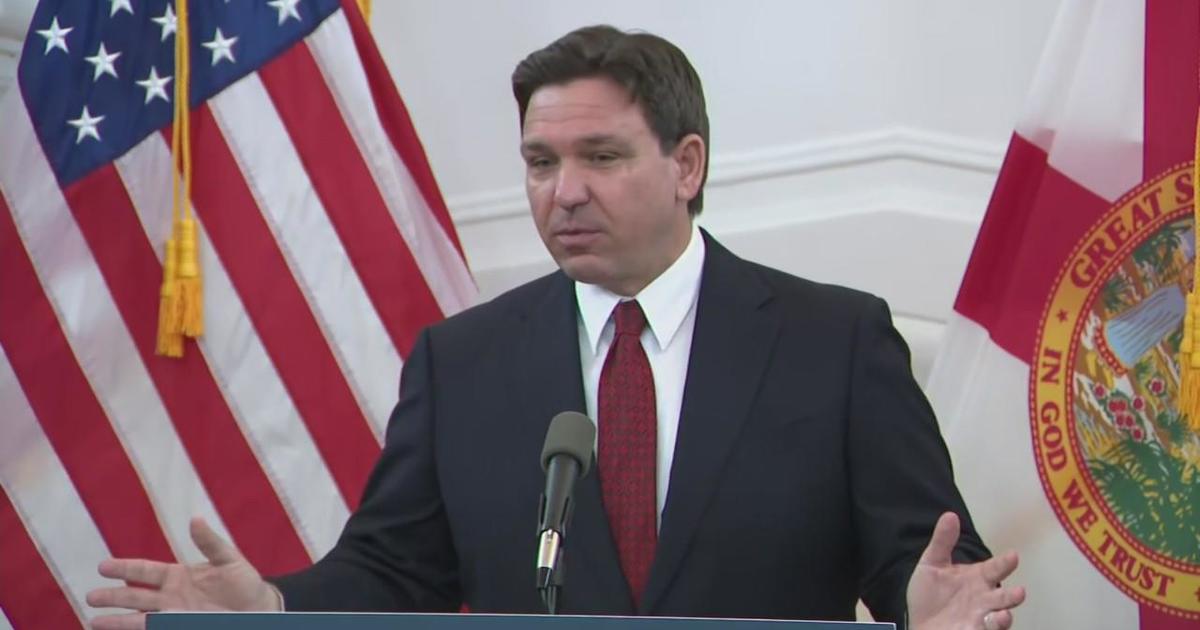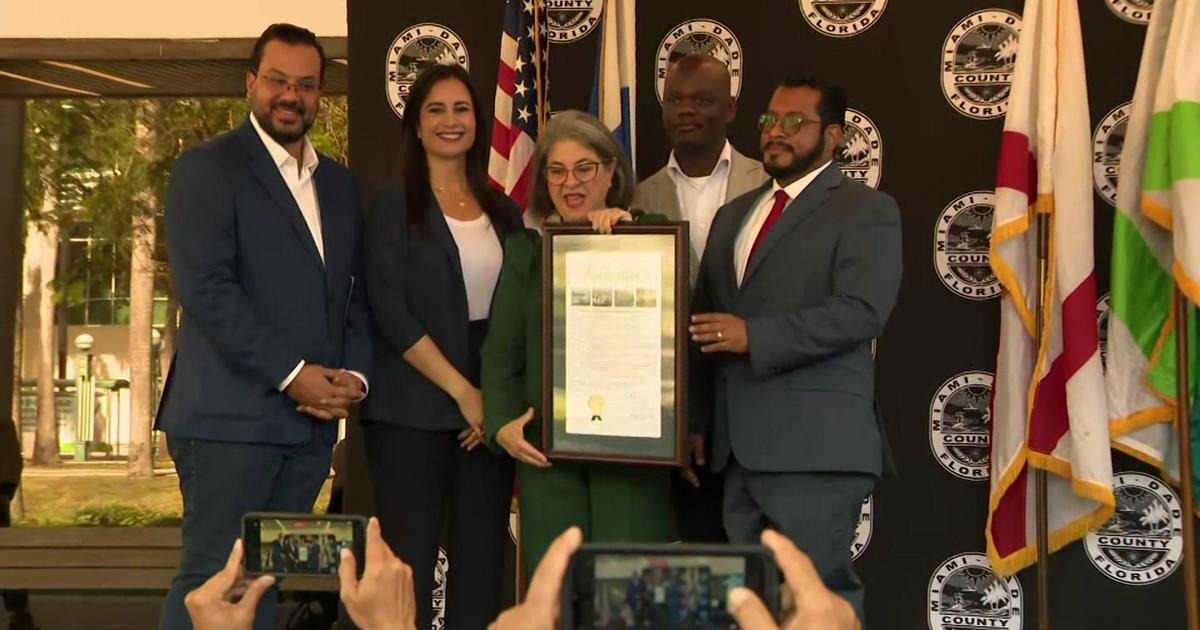US: Cuba Completes Release Of 53 Political Prisoners
Follow CBSMIAMI.COM: Facebook | Twitter
HAVANA (CBSMiami/AP) – As part of December's history-making deal between the United States and Cuba, 53 political prisoners were released, the Obama administration said Monday.
The move clears a major hurdle for the normalization of its ties between the two countries after more than five decades of estrangement.
The prisoners had been on a list of opposition figures whose release was sought as part of the U.S. agreement last month with the Cuban government. They had been cited by various human rights organizations as being imprisoned by the Cuban government for exercising internationally protected freedoms or for their promotion of political and social reforms in Cuba.
CLICK HERE To Watch Eliott Rodriguez's Report
The Obama administration provided the list of released Cuban dissidents to prominent members of Congress. A copy of the list was obtained by The Associated Press. One former prisoner is referred to as "on probation."
In the accompanying letters to lawmakers, Secretary of State John Kerry writes of his concern about "short-term detentions of Cubans peacefully attempting to express their opinions."
"We do not expect that the changes to U.S. will effect a transformation of Cuban society overnight," Kerry writes. "We are convinced, however, the old policy of isolation did not achieve its objectives, and that a new policy will more effectively promote our values and help the Cuban people help themselves as they move into the 21st century."
Speaking in Louisville, Kentucky, President Barack Obama's U.N. ambassador said the prisoners were released in recent days. "Welcome as that step is, and heartening as it is for their families, (it) does not resolve the larger human rights problems on the island," Samantha Power said, according to prepared remarks.
Power was speaking Monday at an event hosted by Senate Majority Leader Mitch McConnell, R-Ky. She outlined issues which the administration and the Republican-led Congress could work together on and issues they remained further apart on.
Both sides want to advance freedom in Cuba, she said, but they disagree on strategy.
"Some of the embargo's staunchest defenders are Democrats and Republicans with deep ties to the island — people whose families came to America fleeing the Castros' repression," Power explained. "These are men and women who are completely dedicated to doing all they can to ensure that Cubans on the island get to enjoy true freedom. So it is important to acknowledge that while there may be disagreements on the best way to get there, we share a common goal of advancing the rights of the Cuban people."
Power said changes already are occurring in Cuba. When Cuban artist Tania Bruguera and other activists were detained after announcing an anti-government event in Havana's historic Revolution Square, she said, nearly 300 Cuban artists signed a letter supporting her freedom.
"In spite of genuine fear, Cubans were speaking out," Power said. "And the Castro government was forced to explain why it would rather arrest a woman than let her speak freely in a public square."
Last month, Cuba and the U.S. agreed to work to restore normal diplomatic relations as part of a deal in which Cuba freed an imprisoned U.S. aid worker along with an imprisoned spy working for the U.S. and the imprisoned dissidents. The U.S. released several Cuba intelligence agents.
"Certainly, for those 53 prisoners, it's a great deal," Sen. Marco Rubio, R-Fla., said in an appearance Monday on "CBS This Morning."
Rubio said he supports improving ties with Cuba but said he's worried that Cuban officials are getting virtually everything they want from the United States for "these minimal changes."
He said he wants to be certain that improved relations between Washington and Havana provides equal benefits to the U.S.
"My interest in Cuba is freedom and democracy," he said. Rubio, a member of the Senate Foreign Relations Committee who's considering a run for the presidency, said there is "no current example" around the world where a "government of resistant tyranny" has moved to greater freedom and democracy as a result of changes in international relations that are based on economic incentives.
(TM and © Copyright 2015 CBS Radio Inc. and its relevant subsidiaries. CBS RADIO and EYE Logo TM and Copyright 2013 CBS Broadcasting Inc. Used under license. All Rights Reserved. This material may not be published, broadcast, rewritten, or redistributed. The Associated Press contributed to this report.)
RELATED CONTENT:



